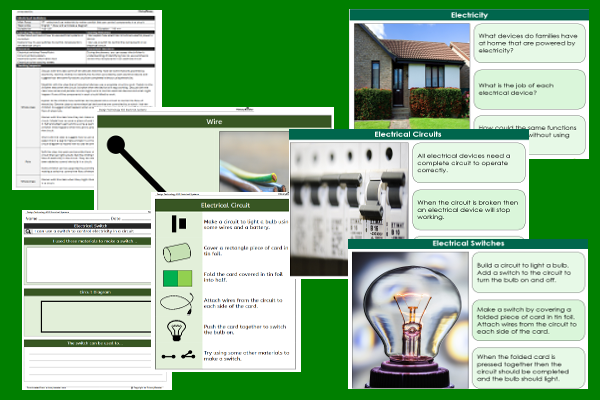Lesson Three – Electrical Switches

This design technology teaching pack for Key Stage Two gets the children to select and use a range of different materials to make a switch that can control components in an electrical circuit.
The class can identify and explain how to shape and combine each of the selected materials when constructing a product with a specific function.
Download this teaching pack including a lesson plan, classroom activities and an interactive presentation to teach the children to select and use a range of different materials to make a switch that can control components in an electrical circuit
Activities in this teaching pack include display posters to identify and describe symbols used to represent components in an electrical circuit, a worksheet to record how to use materials to make a switch that can control components in an electrical circuit and a shared reading text to follow a set of instructions to make a switch that can control components in an electrical circuit.
The interactive presentation gets the children to explore how to select and use materials to make a switch that can control components in an electrical circuit.
This lesson is part of a design technology scheme of work to get the children to select and install an electrical system into a product using different materials and components to make a lighting device for families to use at home. There are teaching activities for shared learning, differentiated worksheets to support independent learning and interactive presentations to introduce concepts and key skills.
-

Theme Park Visit
Practise identifying and calculating the timing and duration of rides and events when visiting a theme park on a special family trip
-

Family Holiday Trips
Identify and record how to compose and publish recounts using adverbials of time and place to describe family holidays to different places in the world
-

Money Multiplication
Explain and model how to use standard written calculation methods to multiply money amounts in pounds and pence when solving number problems
-

Sport Teams
Explain and model how to use brackets and dashes to add extra information to sentences describing how to play sports and games as part of a team
